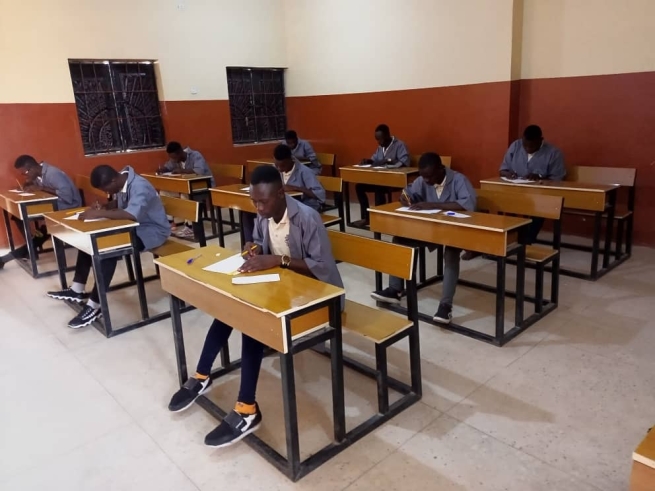Lydia, one of the recipients, is the oldest of seven daughters. Three years ago, her father died and her mother passed away last year. Lydia was left to take care of her siblings, but she cannot afford the fees to send them to school. She is continuing her education to be able to help her siblings.
Markus lost his mother a few years ago and helps to take care of the family. Because of a bandit attack, the family was unable to access their farm produce this year. He is studying to have a chance to earn a living. Sabastine is a brilliant student but was about to stop her education because her family could not financially support her education. The scholarship allowed her to take part in the skills development program.
After the students finish their education, the center has a job service office that will help them make good career choices. They will develop a plan, receive assistance applying and interviewing for jobs, and then transition into the workforce. The job service office will monitor their progress and assess them going forward to see their success.
“Salesian technical and vocational education centers help youth gain the skills for employment,” said Father Gus Baek, director of Salesian Missions. “Providing scholarships enables poor and unfortunate youth to be able to attend school and later find long-term, stable employment. This, in turn, helps their families and communities.”
Salesian missionaries arrived in Koko in 2014 and began developing pastoral programs. This opened up other avenues to serve the local population and the Don Bosco Vocational Training Center was opened in October 2021. The center has four departments including electrical building and construction, fashion and design, and computers. Students take six-month long courses. Currently, there are 154 students, mostly from poor families who would like their children to be enrolled in the training offered.
According to UNICEF, Nigeria is Africa’s most populous country and the ninth most populous country in the world. By United Nations estimates, Nigeria will be one of the countries responsible for most of the world’s total population increase by 2050. While Nigeria has the second strongest economy in Africa, it also has extreme rates of poverty with 100 million people living on less than $1 a day.
About 64 percent of households in Nigeria consider themselves to be poor while 32 percent of households say their economic situation had worsened over a period of one year, according to UNICEF. Poverty still remains one of the most critical challenges facing the country and population growth rates have meant a steady increase in the number of people living in conditions of poverty.
Source: Salesian Missions


